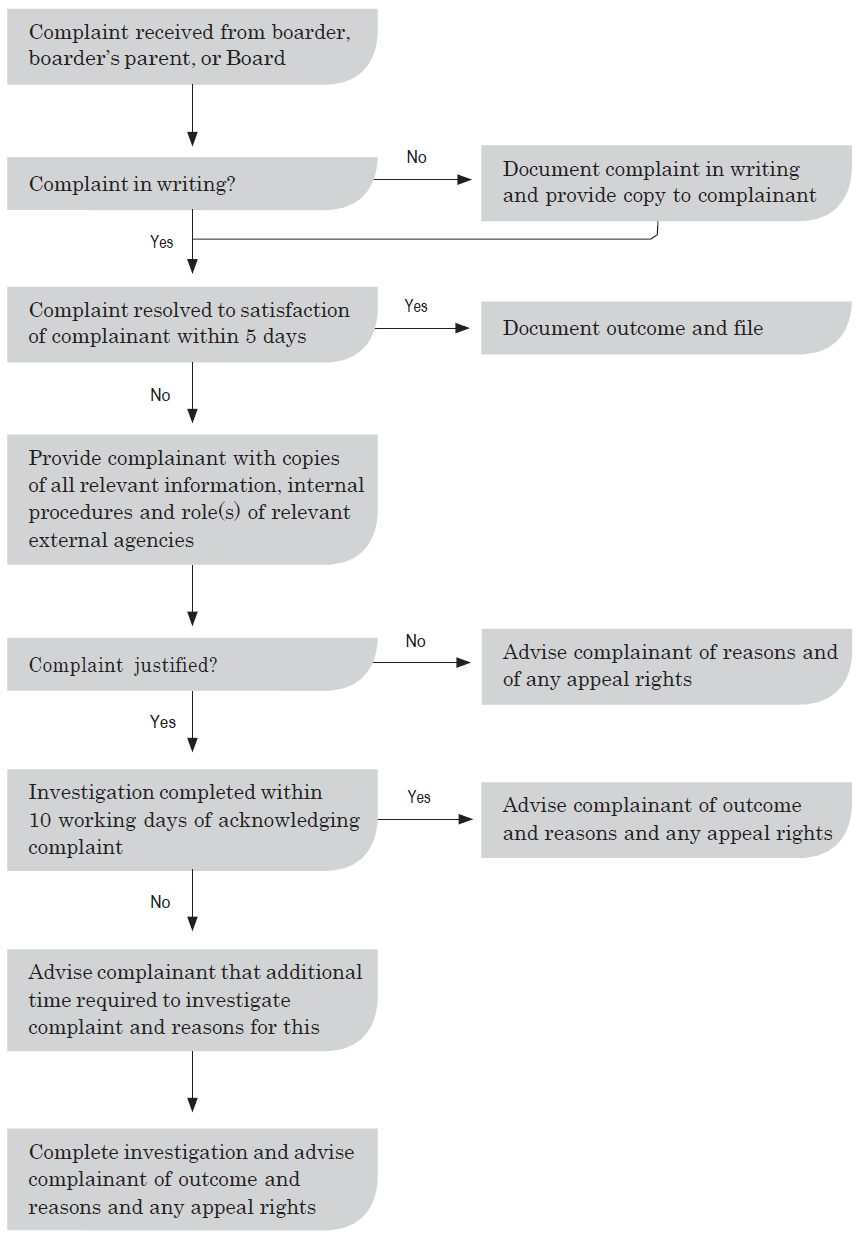The Education (Hostels) Regulations 2005: Guidelines
All hostels that fit the definition of ‘hostel’ in the Education and Training Act and the regulations, and their owners, must comply with the regulations.
The definition covers a wide range of boarding establishments – for example:
- residential specialist schools
- health camps
- hostels operated by state and state integrated schools,
- private hostels serving groups of international students attending registered schools.
It does not, however, cover private boarding where a homeowner provides accommodation to less than five students. Nor does it cover boarding when students attending a registered school are not the main group of people being accommodated.
These guidelines provide further explanation and should be read in association with the regulations. The headings correlate to the relevant parts and requirements of the regulations to make it easy to read the two together.
Part 5: Complaints about hostels by parents or students
The regulations require that any complaints be made to the hostel owner. Where the owner is a body corporate, or an absentee individual or partnership, the hostel’s complaints procedures may be delegated to a responsible person or hostel manager.
This in no way diminishes the responsibility of the owner, or their delegate, to meet the requirements of the regulations in how they must deal with complaints. In dealing with complaints, consideration should be given to the power imbalance that may exist between affected parties. To help address this, hostel owners may wish to consider arrangements that enable parties to be supported by independent advocates.
The regulations set out the timeframes for dealing with complaints and need to be referred to for details. The diagram opposite summarises the process.

